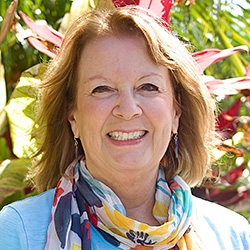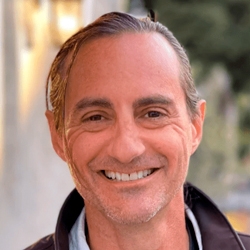

Search Results: rosenberg
-
Our brains often quickly categorizes things as good, bad, right, or wrong and then determines who’s to blame or praise. Maybe this supports the illusion of order and predictability, thus provides a false sense of safety and reassurance. But its less effective in truly meeting our needs. By practicing "Living in the Observation," we can focus on reality, avoid unhelpful rumination, and find peace and empowerment in everyday life.
-
- Learn how every decision we make perpetuates the status quo or brings us closer to the vision of a world that works for all
- Find out about our big brain capacity to integrate needs, impacts, and resources to make decisions that work for everyone
- Understand why power differences interfere with collaborative decisions and what can be done about it
- Discover tools that support collaboration in larger groups and organizations— even across power differences!
-
Anger and resentment can signal unmet needs. Through mourning those needs and practicing self-empathy, we may let go of blame, embrace reality, and reclaim responsibility for fulfilling our own needs. This process may lead to emotional transformation through conscious reflection, and a new outlook.
-
I’m Jeff Brown, Executive Director of the Center for Nonviolent Communication. Mary asked me to be a guest writer for this newsletter, and it’s allowed me to look deeply at the role NVC plays in my life, personally and professionally— especially in running a successful NVC organization.
As the director of an NGO, I am grateful to have learned Nonviolent Communication. I utilize the principles constantly, and I’m not sure how I would survive without them.
-
Dear friend,
There is an article from some years back by Dan Rather called, Why America Needs More Empathy. It touched me deeply when I first read it, and I happened to stumble upon it again recently. It feels so relevant and alive for me right now because he reminded me of what my parents taught me about helping other people.
-
Mary Mackenzie, renowned CNVC Certified Trainer, shares her understanding and experience of empathy.
-
- Learn, practice, and integrate the basic components of NVC
- Understand how to use observations, feelings, needs, and requests
- Grow your communication skills and strengthen your relationships
- Discover how to express yourself honestly and authentically!
-
Jim and Jori Manske share the wisdom of Marshall Rosenberg, the founder of Nonviolent Communication (NVC). Join them to learn why knowing what you want before speaking is essential for clear, meaningful interactions. This snippet from their eight session course, 9 Skills for Navigating Conflict, explores how to make "confirmation requests" to ensure you're understood—whether you're navigating a tough conversation or simply ordering pizza!

Quick Links
Subscription Preferences
Stay In Touch!
Looking for ways to keep up with NVC Academy news, get special offers, free resources, or words of inspiration? Here are five ways to stay engaged:








